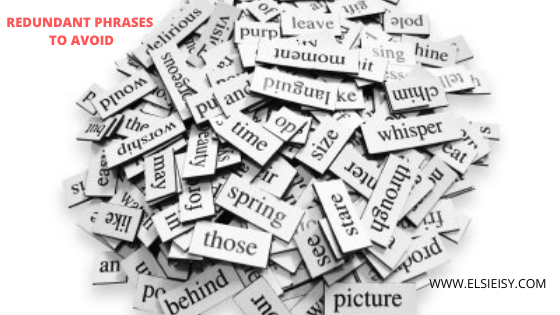Repeating self is a common problem in written and spoken English, however, it can be more prevalent while speaking, especially when it comes to expressions.
Redundant expressions are defined as phrases made up of two or more words that same idea or echo the same meaning.
Some of these expressions are used for emphasis. Being able to communicate properly doesn’t come natural but with a lot of practice and intentionality. You should try to avoid words with overlapping meaning that make your phrase redundant. So redundant words can be forgiven in spoken English but hardly same while writing
Below are some of the common redundant phrases;
Free Gift – A gift is typically free
Cease and desist – You either cease or desist. Either way, you stop doing something
New Recruits – There are no old recruits
Consensus of Opinion – Consensus means agreement of opinion, so why repeat opinion?
Null and Void – Its either Null or Void
Fatal Killings – All killings are fatal
Unexpected surprise – surprises are unexpected
Other Alternative – an alternative is always the other option
Repeat again – when you something you always do it again
Sum Total – A sum is total amount through addition
Past History – History is something that happened in the past
Still remain – When something remains, it is still that thing
Added Bonus – a bonus is always something that is added
Plan ahead – when you plan something, you already do it ahead of time
Revert back – when you revert something, you take it back to its former state
End Result – There is no result at the beginning, the result is always at the end.
New Innovations – if its an innovation then its new
Twelve midnight – midnight is always at 12am, so we can drop twelve without losing any meaning.
Do share other redundant phrases with us in the comment section. Also bear in mind that while avoiding redundancies, you will need to be careful about which term you remove. In most cases, you should always remove the modifying term (adjective or adverb), not the term being modified (verb).






1 comment
I have learned something new today, I’m certain that I have been guilty of a lot of these, but now I know better 😀
Christiana Acha recently posted…Short positive affirmations you should start saying to yourself everyday